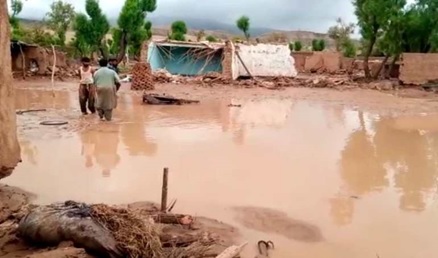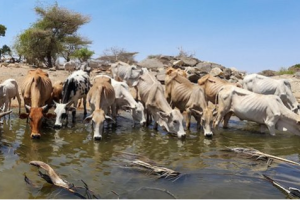
Islamabad, Pakistan – When 30-year-old Asif Shehzad was returning home from his grocery shop in Pakistan’s Punjab province on August 12, he never imagined he would be spending his last night under his own roof.
A resident of Chittar Watta, a small village in the tribal belt in the Koh-e-Sulaiman mountains, some 500 kilometres (310 miles) from the provincial capital, Lahore, Shehzad said it was an ordinary night for him and his family.
“It had been raining for a few days but there was nothing that prepared us for what was to come. My children were having dinner and I was sitting with them when suddenly rain picked up the pace,” he told Al Jazeera by telephone.
Shehzad said that his family would often spend time on their verandah but due to rain, they went inside their rooms. But the rain was relentless that night and did not stop.
“It was non-stop, and it rained like I have never seen before in my life,” he said. Soon, his mud house started showing signs of damage, and part of his roof collapsed in different places.
“Some of my livestock died when the roof caved in. We were afraid that the whole house would fall down, and my entire family decided to seek refuge under trees.”
The 30-year-old recalled that the intensity of the rains, which the country’s climate minister has dubbed “monster monsoons”, kept building and he could see water coming down from the mountains, gushing towards his village. Soon, the water reached his house and swept away at least seven of his cattle and subsequently submerged the entire village. His house is now a heap of rocks and debris.
For the last 18 days, Shehzad and his family have been living in the open on higher ground near the village, while having only one meal a day.
They are among the 33 million people who have been adversely affected by the worst flooding in a decade. More than 1,000 people have died and a third of the country is under water due to the record monsoon rains in the past two and a half months.
All four provinces have been affected by the deluge but southern provinces of Balochistan and Sindh are particularly hard hit with large swaths of area marooned by the floodwaters.
Finance minister Miftah Ismail has estimated the damage at $10bn.
The flood has caused a collapse of communication infrastructure, as a vast network of roads and bridges has been damaged, cutting off access and making it difficult to reach stranded people.
Source: Al Jazeera
The Ethiopian Herald 31 August 2022




